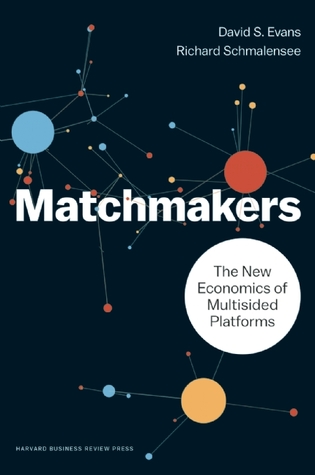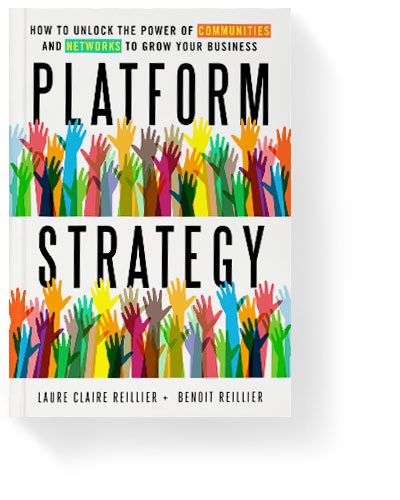El Comitè d'Avaluació, Innovació i Reforma Operativa del Sistema de Salut (CAIROS) que va crear el govern ha presentat en poc més de dos mesos, els reptes i les reformes inicials per al sistema de salut de Catalunya.
Li demano a la IA un resum del document i surt això,
Situació del Sistema de Salut de Catalunya:
● El sistema de salut és considerat un patrimoni de tots, però mostra signes de deteriorament.
● Malgrat tenir bons resultats en esperança de vida, hi ha una preocupació per la mortalitat per causes prevenibles i tractables.
●El sistema de salut és un factor econòmic important, ocupant la tercera posició en valor i ocupació.
● La recaptació d'IRPF és pràcticament equivalent a la despesa pública en salut i dependència.
S'identifiquen tres grans reptes: demogràfic, professional i organitzatiu.
○El repte demogràfic es caracteritza per l'envelliment de la població, amb un augment significatiu de persones majors de 65 i 85 anys.
○El 5% de la població gasta la meitat del pressupost sanitari.
○El repte professional inclou un dèficit de professionals i una alta incorporació de metges extracomunitaris.
○El repte organitzatiu es manifesta en la grandària dels serveis, el nombre de professionals, l'especialització i l'ús de tecnologies, amb un model de gestió que necessita millores. A l'Hospital Vall d'Hebron, per exemple, hi ha aproximadament 10.000 professionals i 1.000 milions d'euros de despesa, i al conjunt del sistema hi ha 150.000 professionals en 2063 centres, amb un pressupost de 14.000 M€.
●Hi ha signes de deteriorament com la falta d'accessibilitat (llistes d'espera), la disminució de l'acceptació social i l'augment del doble assegurament.
Reformes del Sistema de Salut:
●Es mostren reformes a nivell internacional, com l'informe Lord Darzi al NHS (Regne Unit), la Health Policy Commission (Massachusetts, USA), i les reformes a Irlanda del Nord (Regne Unit).
●S'estableix el CAIROS com a organisme independent amb determinació política, amb un equip de 12 membres.
●El model operatiu del CAIROS es basa en premisses de determinació política i independència, i claredat de rol, amb la participació de la Consellera de Salut i altres direccions generals.
●La selecció de mesures es realitza a través de la revisió d'informes, la participació oberta i la priorització.
●Es defineix un perímetre d'acció que inclou macrogestió (principis bàsics i finançament), mesogestió (model de gestió de centres, compra de serveis, polítiques de RRHH i organització dels serveis) i microgestió (gestió clínica, right care i seguretat clínica).
●S'estableix un mètode d'actuació amb equips de transformació operativa (ETO), governança, gestió de projectes i una acceleradora.
Línies d'acció i mesures de reforma (10 línies i 25 mesures):
Les mesures es focalitzen en tres objectius principals: centrar l’atenció en les necessitats de les persones, cuidar els professionals de la salut i optimitzar el funcionament de les institucions.
Les línies d'acció inclouen:
●Simplificació administrativa i de gestió: reducció de tràmits, automatització de processos, ús eficient de dades i descentralització.
●Incorporació de noves tecnologies i IA al sistema: desplegament d'assistent digital i la nova estació clínica HES Ambulatori.
●Adopció de la innovació i suport a la recerca: reforçar el PERIS i accelerar el programa PASS, creant un programa d'intensificació per professionals.
●Impuls al desenvolupament de competències professionals: revisió de rols per a un entorn interdisciplinari.
●Millora de l’organització dels equips d’atenció primària: extensió del model UBA3+ i desburocratització de tràmits.
●Anàlisi de necessitats i suport als professionals: anàlisi prospectiu i identificació de bones pràctiques.
●Més preventiu i predictiu: desplegament de l'Agència de Salut Pública, la Xarxa d'Intel·ligència Epidemiològica i la Taula Una Sola Salut.
●Més integrat i orientat a la cronicitat: integració de nivells d'atenció i desplegament del Pla d'integració de l'Atenció Primària - Residències.
●Més orientat a resultats, incorporant la veu de la ciutadania: implantació de la mesura de satisfacció dels usuaris i la introducció de resultats que importen als pacients en el sistema de pagament.
●Creació dels Centres de Salut Integrals de Referència (CSIR): prova de concepte en 10 CSIR amb modificacions en el sistema de compra i atenció integrada.
Properes passes:
●Constitució dels Equips de Transformació Operativa (ETO), elaboració dels projectes d'implantació i inici de l'avaluació basal.
●S'estableix un cronograma per al 2025-2026 amb dos cicles de mesures centrats en la salut pública i l'atenció primària, i posteriorment en l'atenció hospitalària, intermèdia i salut mental
Aprofito per revisar el diari de sessions del Parlament on la Consellera el 18 de setembre presenta el seu pla d'acció i el resumeixo en IA:
El document és la transcripció d'una sessió informativa de la Comissió de Salut del Parlament de Catalunya, celebrada el 18 de setembre de 2024, amb la consellera de Salut, Olga Pané Mena. La sessió se centra en els objectius i les actuacions del departament en la legislatura actual.
Context i Benvinguda:
● La sessió comença amb la benvinguda del president de la comissió a la consellera. S'indica que aquesta és la seva primera compareixença i que es vol que sigui exhaustiva, amb flexibilitat en els temps de les intervencions.
● La consellera agraeix l'oportunitat de participar en el diàleg i debat, expressant el seu desig de trobar espais de cooperació i consens per millorar el sistema de salut.
Presentació de la Consellera:
●La consellera presenta un powerpoint per guiar la seva presentació.
●Identifica els principals reptes de la legislatura, alguns dels quals transcendeixen aquesta legislatura i requereixen adaptació.
●Presenta dades que contextualitzen els reptes, destacant que el 32% dels ciutadans de Catalunya tenen pòlissa privada per millorar l'accés, i a Barcelona un 40%.
●A nivell europeu, Espanya té un dels finançaments de la butxaca dels ciutadans més alts, amb un 30% addicional a través de diversos formats.
●Catalunya és un referent en tecnologies de la informació i comunicació en salut, però cal treure'n més rendiment.
●Després de la COVID, han emergit moltes necessitats en els sistemes sanitaris europeus, que han iniciat reformes.
●La consellera assenyala que, malgrat tenir un bon sistema sanitari, no es pot mantenir sense reformes per afrontar els reptes.
Principals Línies d'Actuació:
●Atenció integrada social i sanitària: Cal recuperar la llei de l'Agència d'Atenció Integrada Social i Sanitària per millorar la coordinació i el compartiment de dades.
●Atenció domiciliària: El focus ha de ser el domicili per atendre l'envelliment, amb un paper clau de l'atenció primària, els serveis socials i els ajuntaments.
●Atenció primària: L'atenció primària ha de ser enfortida amb eines com la longitudinalitat, la coordinació i la integració, donant continuïtat als pacients i una resposta en 48 hores.
●Salut pública: És un pilar clau juntament amb l'atenció primària, amb la necessitat d'incorporar els acords de París en les polítiques de prevenció, protecció i descarbonització.
●Salut bucodental: Desenvolupar la llei de salut bucodental i posar en marxa prestacions odontològiques per a persones vulnerables.
●Salut mental: Prioritzar l'atenció a la salut mental infantil i juvenil, amb centres de salut mental que vagin a la comunitat.
●Àmbit rural: Cal retenir professionals i talent a l'àmbit rural.
●Lideratges: Revisar els perfils i la pràctica dels lideratges, i feminitzar-los per fer més efectiva la cura dels professionals.
●Llengua: Els professionals han de poder-se dirigir en català als pacients, ja que els pacients tenen dret a parlar català.
●Agenda verda: El sector sanitari també ha de reduir les emissions de gasos d'efecte hivernacle, revisant l'ús de materials plàstics.
●Transformació digital: La intel·ligència artificial, els sensors i els sistemes integrats són solucions per millorar l'eficiència del sistema.
●Avaluació i rendiment de comptes: Qualsevol canvi ha de basar-se en l'evidència científica i s'ha d'avaluar per després explicar-ho als ciutadans.
●Finançament: Volen arribar al 7% del PIB per finançar la salut a Catalunya, revisant el sistema de finançament actual.
●No més documents: Cal deixar d'elaborar documents que repeteixen les mateixes propostes sense implementar-les.
●Any Lluch: La conselleria convoca a celebrar l'any que ve l'Any Lluch per commemorar la Llei General de Sanitat i millorar-la.
Torns dels Grups Parlamentaris:
●Els grups parlamentaris expressen les seves opinions i preocupacions sobre les propostes de la consellera, destacant temes com el finançament, les llistes d'espera, la salut mental, l'atenció primària, la gestió dels recursos, la defensa del model sanitari català a Madrid, la pediatria a l'atenció primària i la importància de la llengua catalana en el sistema sanitari.
●Els grups també mencionen la necessitat d'un acord per garantir la sostenibilitat del sistema sanitari, l'equitat territorial, i la garantia dels drets lingüístics i sexuals i reproductius.
●Els grups parlamentaris de l'oposició destaquen la necessitat de millores laborals per als professionals, la inversió en infraestructures i tecnologia, i la necessitat d'un pla per a la reducció de les llistes d'espera.
●El grup parlamentari dels Comuns posa en valor la importància de la longitudinalitat en l'atenció i el creixement de les assegurances privades. També destaquen la importància de l'emergència climàtica i la necessitat de vincular la salut pública amb les onades de calor i noves malalties.
●La CUP qüestiona el model de concertació publicoprivada i demana mesures per millorar les condicions laborals dels professionals.
●El grup parlamentari socialista remarca la importància del diàleg i el consens, i destaca la necessitat d'incrementar el finançament i de reforçar l'atenció primària.
Resposta de la Consellera:
●La consellera respon a les preguntes agrupant els temes, prometent més precisions personals als diputats i ofereix enviar les dades sobre les llistes d'espera.
●Reconeix que el focus en les llistes d'espera ha de ser el temps d'espera i no tant el nombre de persones.
●Fa una crida a no oblidar que els ciutadans tenen dret a ser atesos i que no es poden aplicar ideologies en la gestió del sistema sanitari.
●La consellera destaca la dificultat d'importar professionals d'altres països per motius ètics i proposa que s'incentivi l'allargament de la vida laboral dels professionals.
●Pel que fa al tema de la llengua, la consellera destaca que el focus ha d'estar en el dret del pacient a ser atès en la seva llengua.
●La consellera explica que la cobertura de vacances dels professionals s'ha de gestionar de manera que es garanteixi el descans dels treballadors i la cobertura del servei, i es mostra partidària de l'avaluació de resultats tant del sector públic com del privat per aprendre dels que ho fan millor.
●La consellera aclareix que els alts càrrecs no arriben per meritocràcia i que cal canviar la situació, també argumenta que els gerents dels hospitals són alts càrrecs des de fa uns quants anys per una decisió del senyor Montoro.
●La consellera també comenta la situació del dengue, que ha estat controlat, i que l'hospital de la Seu està en el pla funcional, però depèn dels pressupostos, i finalment que la seva posició sobre l'ampliació de l'aeroport és coneguda.
Torn Final dels Grups:
●Els grups parlamentaris tornen a prendre la paraula per fer comentaris finals i preguntes.
●Hi ha referències a salut a totes les polítiques i la llei de formes no contractuals, que la consellera assegura que tiraran endavant.
●La consellera respon que les competències sanitàries estan preservades, que ja estan treballant amb altres departaments i que l'Agència de Salut Pública és un organisme autònom administratiu.
●La consellera indica que el Departament de Salut destina 60 milions a la recerca, que el Centre de Teràpies Avançades té assignats 20 milions i que s'està executant el pla estratègic de recerca.
En resum, la sessió informativa serveix per a presentar les línies mestres de la política de salut per a la legislatura actual, donant veu a tots els grups parlamentaris i creant un espai de diàleg per abordar els reptes del sistema sanitari de Catalunya.
Vist Cairos i vista la compareixença, cap novetat. La roda del hamster segueix igual, rodant. Amb algunes singularitats, l'ús indiscriminat del powerpoint. En Jeff Bezos va prohibir el powerpoint a Amazon i va dir als seus treballadors que quan tinguessin una idea que vulgués prosperar, l'escrivissin en 6 pàgines i la presentessin als grups de treball, i així ho fan.
El powerpoint és una enumeració d'enunciats, es pot tenir com ajuda per expressar gràfics o taules complexes en un discurs. Però el més important és crear l'argument i això es fa amb eines de persuassió. Un powerpoint és fred, persuadeix poc o gens, pot servir en directe, però no funciona en diferit.
Trobo a faltar un diagnòstic actualitzat del moment. Ens pensem que sabem coses i les donem per fetes, però no és necessàriament així. Convé actualitzar dades i centrar-nos en aquelles tendències que estan canviant de cop. Si busqueu per exemple, una dada fonamental com és la satisfacció dels ciutadans amb el sistema de salut, no la trobareu a la presentació de Cairos. La dada que faig servir és sempre la darrera del baròmetre del CEO i diu coses que no agraden al polític de torn, i és que els ciutadans consideren que el tercer problema més important que té Catalunya és la sanitat (p.13), després de l'habitatge i la inseguretat. (Diu 1 Habitatge car 2.Accés a l'habitatge 3.Inseguretat ciutadana 4 .Sanitat, però clarament 1 i 2 és el mateix, per això ho considero com a tercer problema de Catalunya). Hi ha una dada indirecta que es recull a la presentació i es refereix a que una tercera part dels ciutadans que voten amb els peus i se'n van a contractar una assegurança voluntària quan ja tenen l'obligatòria. Indicador crucial del desori del moment al sistema públic. Per cert a per a Cairos aquesta tercera part de la població és inexistent pel que fa a la necessitat de reformes, es deixa tot al laissez-faire.
Posar-se d'acord amb el diagnòstic és crucial per generar els consensos necessaris per avançar. Aquest és l'esforç que vam fer amb el Pacte Nacional de Salut, ara fa una dècada, i tots els stakeholders van aprovar-lo excepte sindicats i grups polítics de l'oposició. Evidentment utilitzaven la política sanitària com eina de confrontació política i no pretenien resoldre els problemes de país, i així ho van expressar.
Cal tenir el llistat de reformes, cert, però alhora cal persuadir de que la seva aplicació ens portarà millores substancials en la salut poblacional i per això és prioritari posar-se d'acord en el diagnòstic i els factors crítics d'èxit. Veurem quins són els propers passos per ara només hi ha les primeres línies d'acció com diu el títol, anuncis genèrics inconcrets.
PS. I per acabar-ho d'adobar, ahir a la tarda al Parlament diuen des d'ERC (p.49):
Dos, pacte nacional de salut. No pot ser substituït pel CAIROS. El pacte nacional de salut ha d'acabar els seus treballs i el pacte nacional de salut ha de poder tancar definitivament aquells treballs que es van obrir en la passada legislatura i no poden ser substituïts per un grup d'experts que, entre d’altres coses, volen la liberalització del sector.
i li responen que si, des del partit del govern, que al gener en parlem...
Hi ha algú al timó o anem a la deriva? Que triem experts o consens? Quina és la via? O totes dues alhora?
PS. Recordem quines són les entitats que van arribar al consens i van subscriure el Pacte Nacional de Salut de 2014, a més de la coalició de govern: Associacions empresarials - Unió Catalana d’Hospitals - Consorci de Salut i Social de Catalunya - Institut Català de la Salut Corporacions professionals - Consell de Col·legis de Metges de Catalunya - Consell de Col·legis d’Infermeres i Infermers de Catalunya - Consell de Col·legis de Farmacèutics de Catalunya Entitats municipalistes - Associació Catalana de Municipis - Federació de Municipis de Catalunya Entitats científiques - Acadèmia de Ciències Mèdiques i de la Salut de Catalunya i de Balears Universitat - Consell Interuniversitari de Catalunya Entitats d’usuaris i pacients - Fòrum Català de Pacients - Coordinadora d’Usuaris de la Sanitat, Salut, Consum i Alimentació Indústria - Federació Espanyola d’Empreses de Tecnologia Sanitària - Farmaindustria









